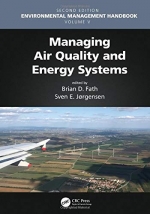Tab Article
Bringing together a wealth of knowledge, the Handbook of Environmental Management, Second Edition, gives a comprehensive overview of environmental problems, their sources, their assessment, and their solutions. Through in-depth entries, and a topical table of contents, readers will quickly find answers to questions about pollution and management issues. This six-volume set is a reimagining of the award-winning Encyclopedia of Environmental Management, published in 2013, and features insights from more than 500 contributors, all experts in their fields.
The experience, evidence, methods, and models used in studying environmental management is presented here in six stand-alone volumes, arranged along the major environmental systems.
Features of the new edition:
- The first handbook that demonstrates the key processes and provisions for enhancing environmental management.
- Addresses new and cutting -edge topics on ecosystem services, resilience, sustainability, food-energy-water nexus, socio-ecological systems and more.
- Provides an excellent basic knowledge on environmental systems, explains how these systems function and offers strategies on how to best manage them.
- Includes the most important problems and solutions facing environmental management today.
In this second volume, Managing Air Quality and Energy Systems, the reader is introduced to the general concepts and processes of the atmosphere, with its related systems. This volume explains how these systems function and provides strategies on how to best manage them. It serves as an excellent resource for finding basic knowledge on the atmosphere, and includes important problems and solutions that environmental managers face today. This book practically demonstrates the key processes, methods, and models used in studying environmental management.


